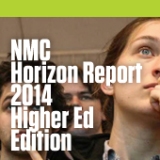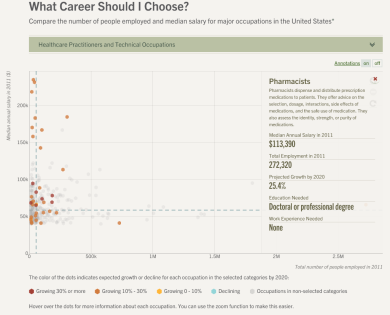 Though it has been sometime in the making the Federal College Scorecard site is up and running.
Though it has been sometime in the making the Federal College Scorecard site is up and running.
The site uses a combination of Federal data sources including loan and tax return data. The upside of this is the documentation that goes with the site here, contains a wealth of information on how the analysis was done, what data sources were used, and instructions how to tap into (or download) the data using a pretty straightforward API.
There is much discussion concerning the pros and cons of using the data this way. Each position is worth a read. You can read a sample of the concerns from the New York Times, Wall Street Journal, and the Chronicle of Higher Education. The issues raised include fears that this represents another step in the view that Higher Ed Institutions can be viewed as and shopped for. While there is lots of data present here, there is also the underlying worry that the data is incomplete, or provides a skewed view of the institutions.
As with any new data source it is worth a look, especially with the open nature and full descriptions of the data used.
Site – College Scorecard
SJU Information – St. John’s University
 There are also a number of nice US Department of Education Blog posts available on their HomeRoom Blog. For College Scorecard specific posts, have a look here.
There are also a number of nice US Department of Education Blog posts available on their HomeRoom Blog. For College Scorecard specific posts, have a look here.
This type of data is definitely the direction that the new knowledge based society is taking us in. It provides a snapshot of how students fair after school and it deeply lists the data sources that were used. Incomplete or not, there is only going to be more data like this released and used.




